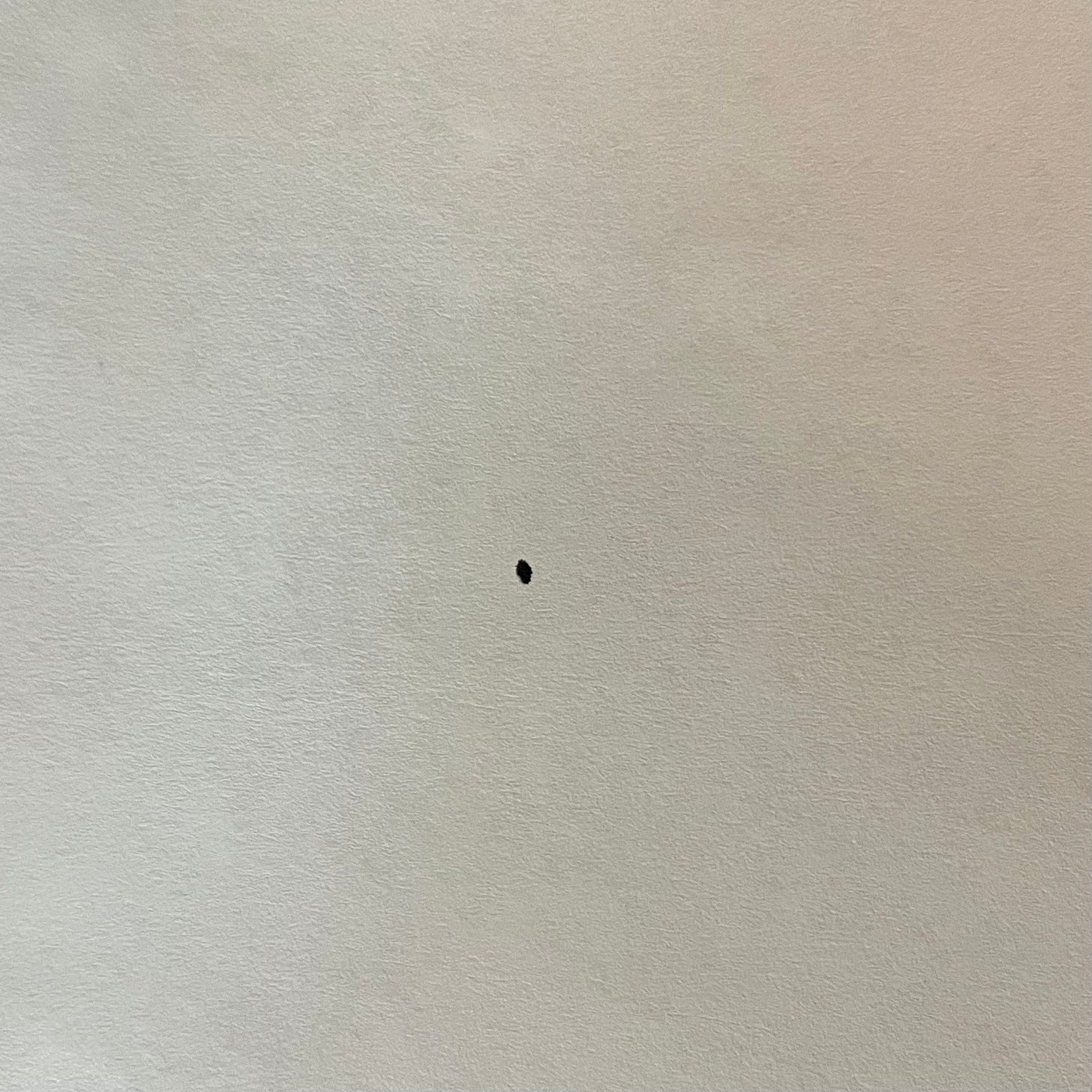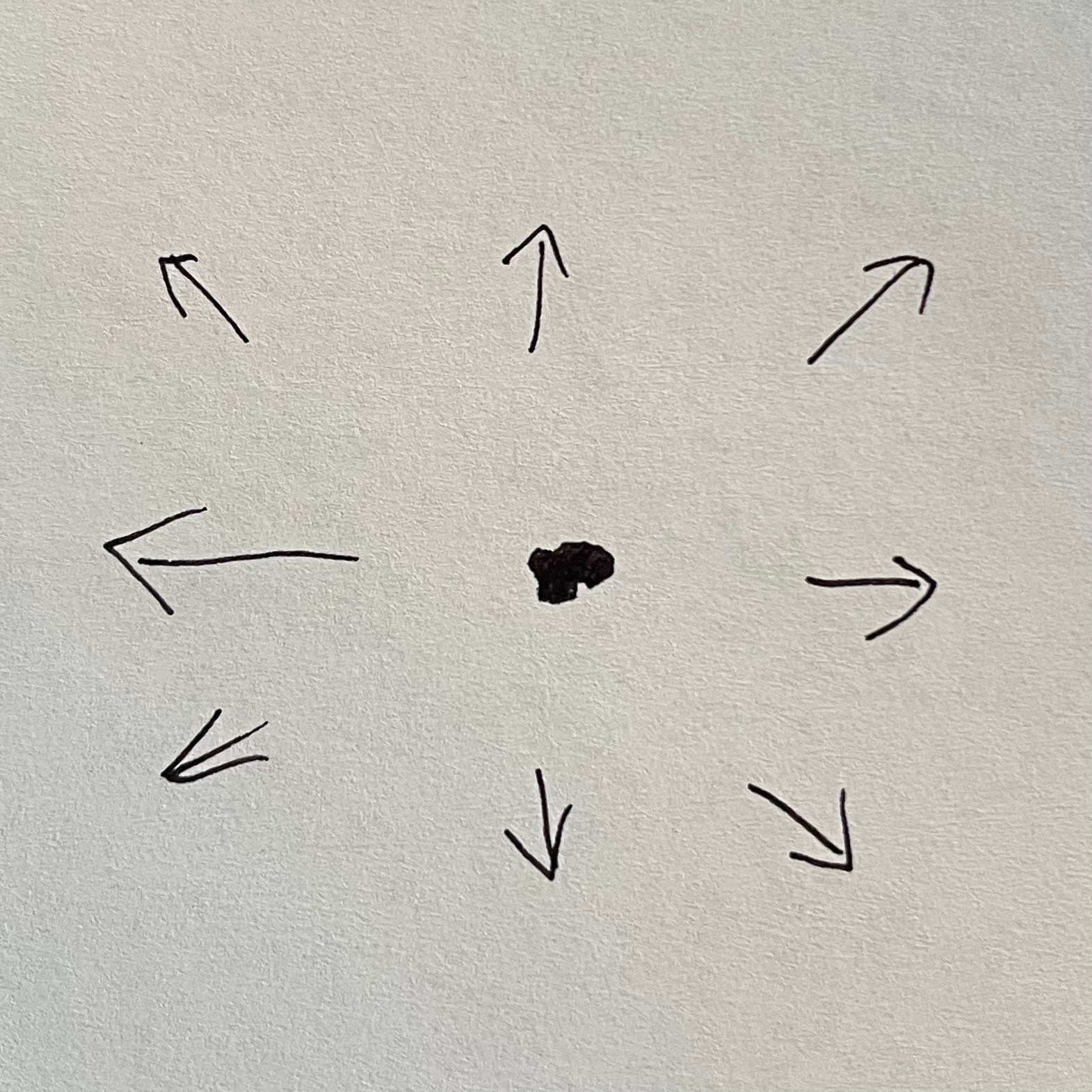I am cognitively limited (and so are you)
Two stories from living
Act I: A black dot suspended in space.
“Imagine a black dot suspended in space,” a taxi driver once said to me. “Now imagine that said space is a different color, perhaps white. That black dot, that’s your knowledge, everything you’ve ever heard or read about. Now imagine that you’ve learned something new. As your knowledge increases, so too does the size of that dot. In fact, the dot is no longer a dot but an ever-increasing mass stretching across the white space. However, no matter how large that mass becomes, it doesn’t get any closer to the edge of that space. As you learn more, you realize the magnitude of that which you’ll never understand.”
This metaphor was originally conveyed to me in Russian using Georgian phraseology, so my summary loses almost all of its stylistic characteristics. However, Giorgi made a good point that evening as we drove down Rustaveli Avenue in his white Toyota Prius.
As Aristotle famously said, “The more you know, the more you realize you don't know.” While Giorgi probably isn’t Aristotle (I’ve never seen them both in the same room), he came to this realization as he listened to audiobooks while driving around.
We then got into a debate about whether it’s better to be an incurious normy and enjoy life or to be interested in expanding one’s knowledge at the expense of sanity and a sense of calm on this earth.
While the incurious are almost certainly the happier of the two categories, they are at the mercy of their emotions. They aren’t able to step back and understand why they feel the way that they do in a particular situation. However, they probably don’t have daily existential crises about what it means to live and what it means to eventually be dead forever.
On the other hand, while gaining knowledge is scary, particularly when you realize the implications, you are subsequently better able to process the grim parts of existence as well as to understand your own emotions. Once we’re courageous enough to sincerely engage with these questions, we will be better able to cope with the realities of existence.
I’ve made a lot of progress with this in my own life, and apparently so has Giorgi.
Act II: I’ve never had an original thought in my entire life, and neither have you.
Isaac Newton and Gottfried Leibniz invented calculus around the same time independently of each other . Charles Darwin and Alfred Russell Wallace independently came to the same conclusion about natural selection. Even when we’re thinking in a vacuum, we’ll often come to the same conclusions. It’s almost impossible to have original ideas (the concept for this article isn’t even my own idea).
Everything I have ever written or will ever write in this newsletter has already been thought of by someone else. I usually come across these ideas by having read about them somewhere that one time. Maybe a friend or acquaintance mentioned something that stuck with me (that’s where this idea came from). Perhaps I came to a conclusion independently only to find, after a quick Google search, that I am not alone in my thinking.
This realization was not pleasant for me. We live in a culture that rewards narcissism and self-aggrandizing behavior; “How could it be that I didn’t come up with that?” For the average ape scrolling through TikTok, this is only natural (I’m an ape too, relax). There are a trillion “theories” on TikTok. String theory, jello theory, insert theory here theory. You can search these theories yourself, they aren’t particularly interesting. None of them are original, but the “creators” of these theories don’t know that. In fact, TikTok is a factory of regurgitated bad ideas (perhaps I’ll elaborate in a future article).
I think that the lack of originality in life is a gift creatives. Most people think that creativity and originality are synonymous, a divine image that appears in the mind of an artist. We study the stories of great innovators who, seemingly out of nowhere, realized something that nobody else could. This is a caricature of the creative process. Every innovation stands on a series of previous innovations, without which no further progress would be possible.
Even Pablo Picasso and Jean-Luc Godard built their approaches to visual art and cinema respectively on mountains of predecessors. Godard’s work would have been radically different had he worked fifty years earlier. Picasso’s cubism was heavily influenced by African art, and his work would go on to influence architecture and many artists after him.
This doesn’t just apply to great thinkers and creators: every one of us is the product of hundreds of generations of people who had to figure out how to do what is now taken for granted.
I am writing this article in a café in Birmingham, Alabama, on a computer. I drove here in a car. I’m drinking coffee and consuming electricity. I’m writing in English using a latin-derived alphabet. Somebody had to come up with every component of these things. I’m not just talking about inventing the computer. I’m talking about mining. I’m talking about power generation. I’m talking about the internal combustion engine.
If these things were never discovered by people that neither I nor my ancestors ever met, I wouldn’t be writing these articles, and you wouldn’t be reading them. We would likely be working in farms, or, if we go far enough into the past, hunting in the bush.
While creativity and critical thinking are essential for child development, our culture’s emphasis on originality is creating unrealistic expectations about life, or worse, delusions of grandeur. There are degrees to which this grandeur influences child development. If your parents are both 5’5” tall (about 165 cm), let’s say, there’s almost no chance for you to become a professional basketball player, no matter how talented you might otherwise be or how hard you work on your jump shot.
You can’t do whatever you want in life. We all have aptitudes, things we’re naturally good at and things we’re naturally bad at. Great success at anything in life involves a combination of natural ability and hard work. While you can outwork others in the short term, talent will eclipse that hard work in the long run as everyone at the highest levels of any endeavor are both extremely talented and working every hour of every day to achieve their goal. Even if you’re in the 75th percentile, you have no chance of getting to the top.
While most of us will join the workforce in entry level jobs and play the political games of the office, others will naïvely decide that they are some kind of genius that can do it all by themselves. The latter group is deluding themselves, but the beauty of life is, generally, unless you really are a genius, you will be humbled in the marketplace. For every massive business success, there are one hundred failures.
Even what many consider to be the safe route, getting a corporate job, can be a dead end if the choice for a promotion is between you and somebody supremely more competent.
I grew up with the very delusions I write about. I mentioned in a previous article that I grew up in a somewhat unusual environment as an only child in a non-visible minority ethnic group. I sincerely believed that I could become anything. I came into adulthood with an enormous ego and a sense of indestructibility. This was luckily crushed by living in the real world, but it still led to me choosing the crazy path that I’m currently on.
I’ve always struggled working in a hierarchical structure because I usually felt that I could do my manager’s job (sometimes true, but sometimes not). I would rather go out on my own, make mistakes and embarrass myself than put myself at the mercy of another person with character flaws similar to my own.
Working independently gives me an illusion of control. I use the word illusion because instead of a boss firing me, a client could simply decide not to buy from me again/renew an agreement/collaborate with me in the future.
Sure, with a good offer in the marketplace, you can make money/achieve your goal/get attention (these are interchangeable for most).
However, it ultimately comes down to the desire to be original, to make your own path. Our culture, the American culture, glorifies this kind of success. America is a country built by people who, at some point in their lineage, decided to drop their former lives and get on a boat to some totally unknown land, never to see their relatives again.
This characteristic of Americans is why this country is the number one economy in the history of the world. It is also why this society is so broken in many other ways.
Entrepreneurship is the most American story. It’s why having a government job in the United States is, from a cultural standpoint, for losers, while civil service à la République française is competitive and considered prestigious.
Life is a series of tradeoffs, and, sometimes, we must make an economic tradeoff for one of lifestyle. I made an economic tradeoff by living outside the US, and I don’t regret it so far.



